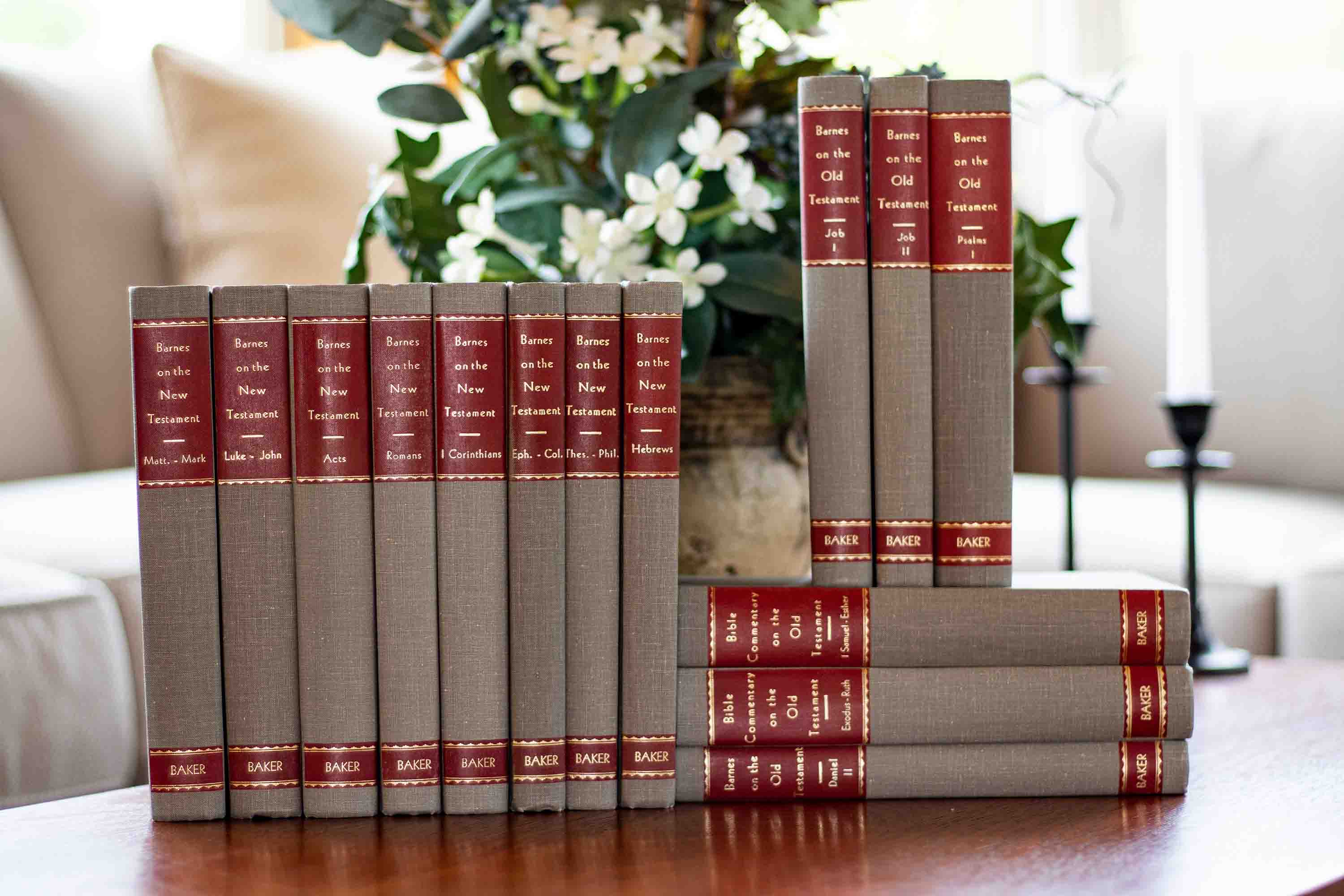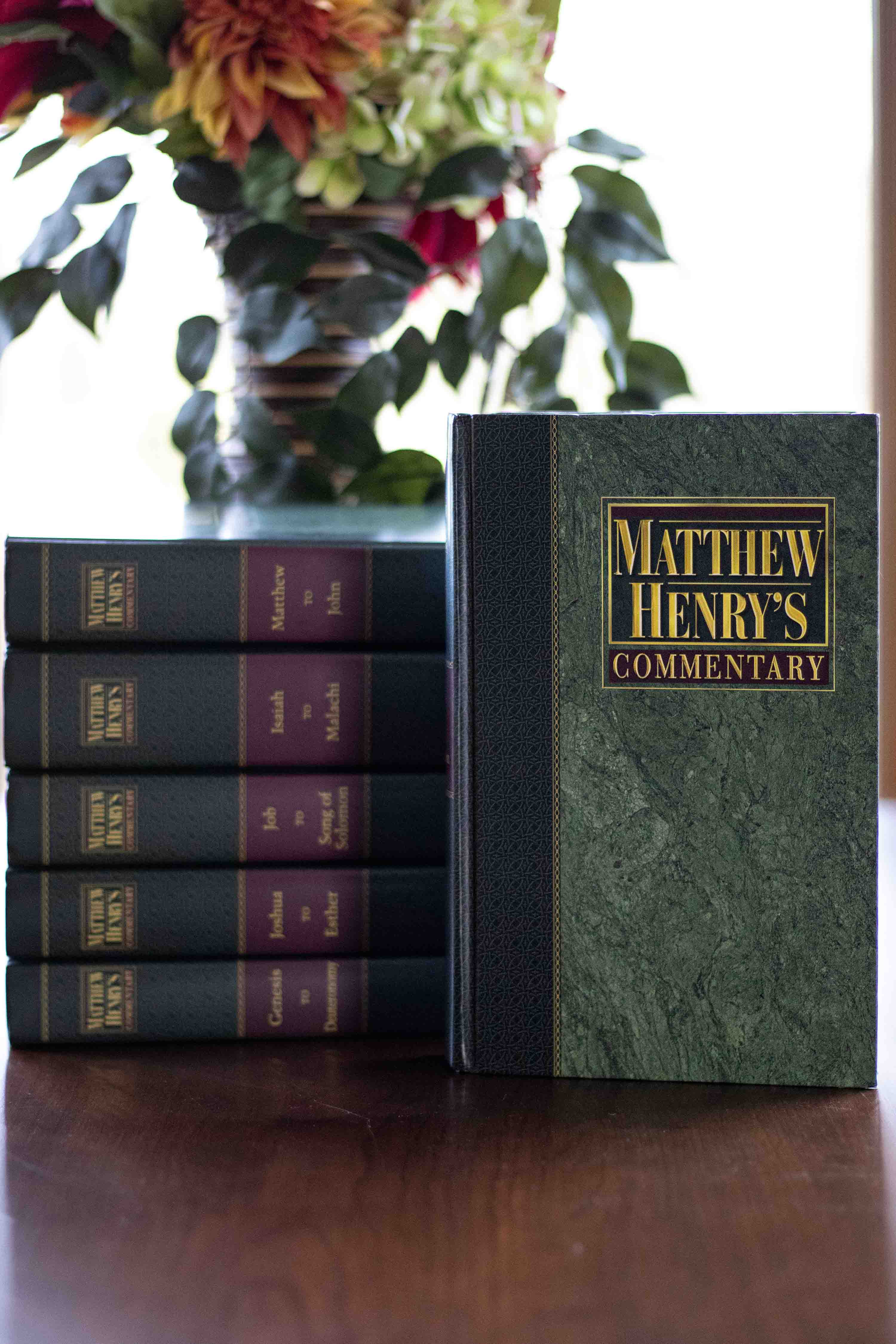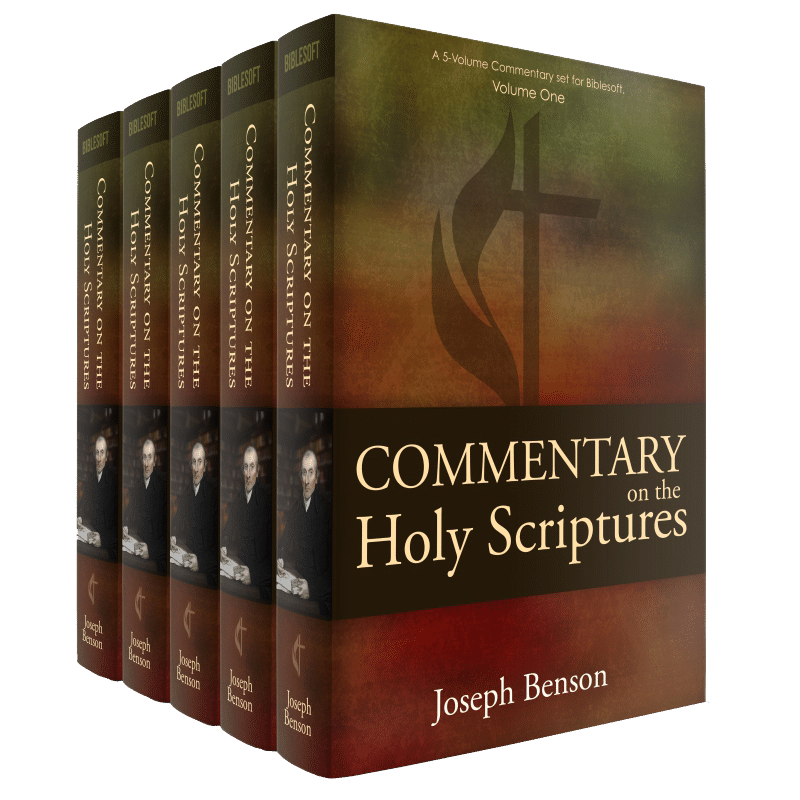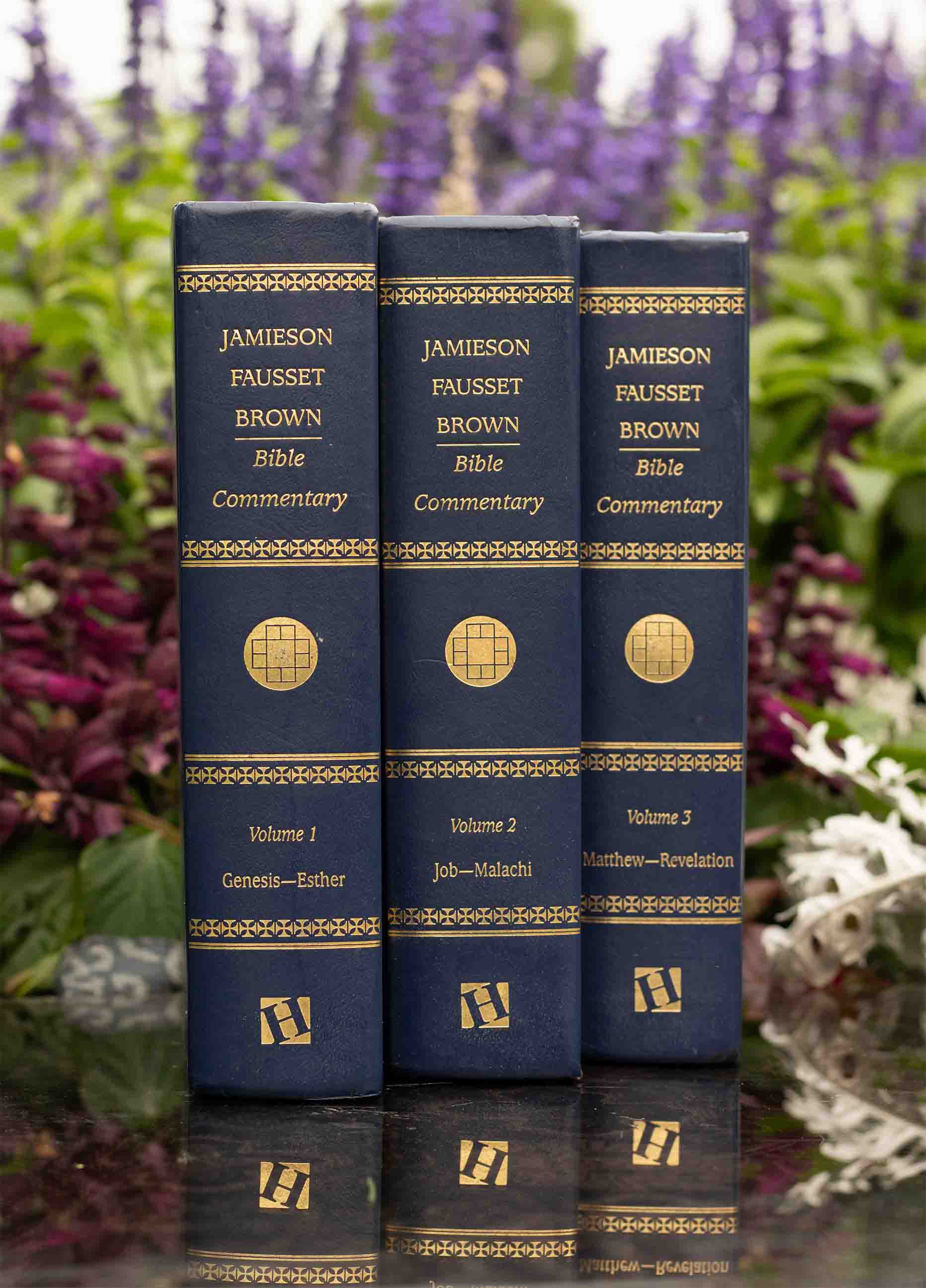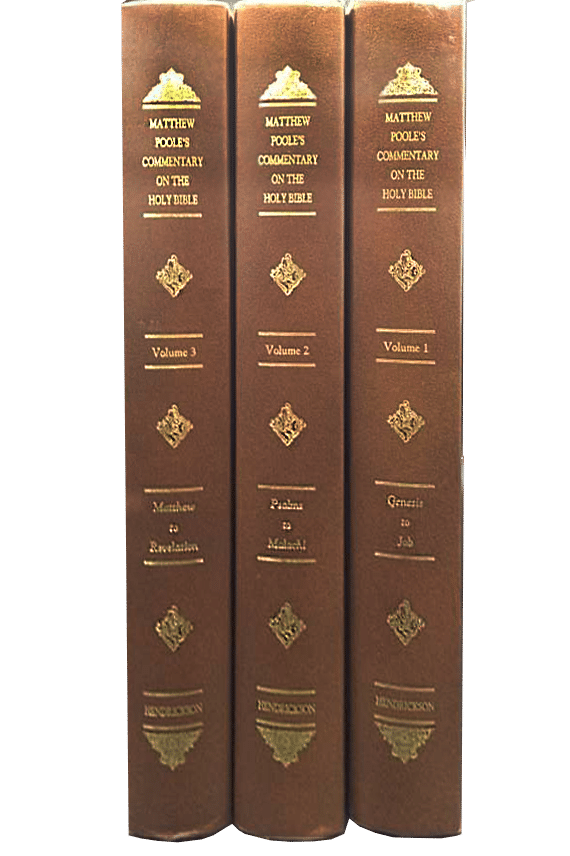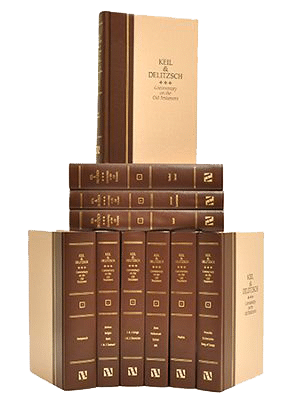Trusted Bible Commentaries
Charles Ellicott, best known for his Bible Commentary and was an outstanding conservative scholar in the 19th century. He was quite accomplished as a Divinity Professor at Cambridge, Dean of Exeter, and Bishop of Gloucester but is best remembered for his commentaries on Galatians, Ephesians, Philippians, Colossians, Thessalonians, and Philemon.
Albert Barnes was a Presbyterian preacher, who is better known for his expository works. Barnes’ notes on the New and Old Testaments were first published in 1932. Barnes’ writing style is noted to be clear and concise with an emphasis on original Hebrew and Greek words. Charles Spurgeon said concerning this commentary, “No minister can afford to be without it.”
Matthew Henry was a British Nonconformist minister, but he is better known for his various books and commentaries. His six-volume commentary on the whole Bible started in 1704. By his death, he completed Genesis to Acts. The remainder of the bible commentary, Romans to Revelation, was completed by his fellow ministers via Henry’s own notes and writings.
Prominent theologian and Methodist minister Joseph Benson was very committed to bible studies throughout his preaching career. He soon gained a reputation as a skilled bible scholar. Benson’s first major work was his publication of a commentary on the book of Job. He then continued to publish commentaries on various books of the Bible, such as Genesis, Isaiah, and the New Testament Gospels. His commentaries have been noted to be clear, practical, and heavily weighted on the original Hebrew and Greet texts to provide an accurate understanding of the scripture. Benson started publishing his five-volume commentary on the entire bible in 1811, which remains to be a valuable resource to preachers, bible scholars, and Christians.
Jamieson-Fausset-Brown Bible Commentary
First Published in 1871
The Jamieson-Fausset-Brown Bible Commentary was created by three theologians and scholars from across the United Kingdom. The six-volume bible commentary was published in 1971 and continues to hold a high reputation due to its “scholarly rigor” and “devotional value.”
Matthew Poole, a renowned theologian and Bible scholar, was born in York, England in 1624. Poole served as minister of St. Michael-le-Querne in London for a time, but later worked almost solely on his Biblical studies. Spurgeon said of Poole, “He is a very prudent and judicious commentator, less a commentator, and more an expositor.” Before Poole finished his commentary, he died in October of 1679. His friends completed the work and published it in 1685. Today he is still considered one of the eminent Puritans of Great Britain’s Biblical scholarship.
The Keil and Delitzsch OT Commentary was written by two German men, Karl Friedrich Keil (1807-1888) & Franz Delitzsch (1813)-1890). The 10-volume commentary was originally published in German in 1864 and then published in English shortly after. Through the commentary, the authors wished “to furnish not only a grammatical and historical exposition of the facts and truths of divine revelation, but a biblical commentary also, and thus to present to all careful readers of the Bible, especially to divinity students and ministers of the Gospel, an exegetical handbook, from which they may obtain some help towards a full understanding of the Old Testament economy of salvation, so far as the theological learning of the Church has yet been able to fathom it, and possibly also an impulse to further study and a deeper plunge into the unfathomable depths of the Word of God.”
Charles Ellicott, best known for his Bible Commentary and was an outstanding conservative scholar in the 19th century. He was quite accomplished as a Divinity Professor at Cambridge, Dean of Exeter, and Bishop of Gloucester but is best remembered for his commentaries on Galatians, Ephesians, Philippians, Colossians, Thessalonians, and Philemon.
Albert Barnes was a Presbyterian preacher, who is better known for his expository works. Barnes’ notes on the New and Old Testaments were first published in 1932. Barnes’ writing style is noted to be clear and concise with an emphasis on original Hebrew and Greek words. Charles Spurgeon said concerning this commentary, “No minister can afford to be without it.”
Matthew Henry was a British Nonconformist minister, but he is better known for his various books and commentaries. His six-volume commentary on the whole Bible started in 1704. By his death, he completed Genesis to Acts. The remainder of the bible commentary, Romans to Revelation, was completed by his fellow ministers via Henry’s own notes and writings.
Prominent theologian and Methodist minister Joseph Benson was very committed to bible studies throughout his preaching career. He soon gained a reputation as a skilled bible scholar. Benson’s first major work was his publication of a commentary on the book of Job. He then continued to publish commentaries on various books of the Bible, such as Genesis, Isaiah, and the New Testament Gospels. His commentaries have been noted to be clear, practical, and heavily weighted on the original Hebrew and Greet texts to provide an accurate understanding of the scripture. Benson started publishing his five-volume commentary on the entire bible in 1811, which remains to be a valuable resource to preachers, bible scholars, and Christians.
Jamieson-Fausset-Brown Bible Commentary
First Published in 1871
The Jamieson-Fausset-Brown Bible Commentary was created by three theologians and scholars from across the United Kingdom. The six-volume bible commentary was published in 1971 and continues to hold a high reputation due to its “scholarly rigor” and “devotional value.”
Matthew Poole, a renowned theologian and Bible scholar, was born in York, England in 1624. Poole served as minister of St. Michael-le-Querne in London for a time, but later worked almost solely on his Biblical studies. Spurgeon said of Poole, “He is a very prudent and judicious commentator, less a commentator, and more an expositor.” Before Poole finished his commentary, he died in October of 1679. His friends completed the work and published it in 1685. Today he is still considered one of the eminent Puritans of Great Britain’s Biblical scholarship.
The Keil and Delitzsch OT Commentary was written by two German men, Karl Friedrich Keil (1807-1888) & Franz Delitzsch (1813)-1890). The 10-volume commentary was originally published in German in 1864 and then published in English shortly after. Through the commentary, the authors wished “to furnish not only a grammatical and historical exposition of the facts and truths of divine revelation, but a biblical commentary also, and thus to present to all careful readers of the Bible, especially to divinity students and ministers of the Gospel, an exegetical handbook, from which they may obtain some help towards a full understanding of the Old Testament economy of salvation, so far as the theological learning of the Church has yet been able to fathom it, and possibly also an impulse to further study and a deeper plunge into the unfathomable depths of the Word of God.”


